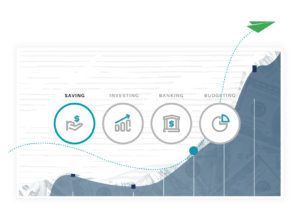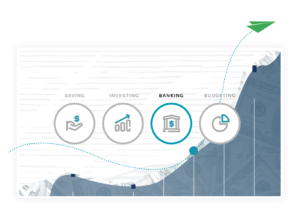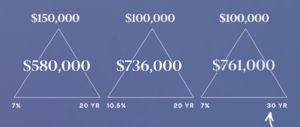Details Are Part of Our Difference
Embracing the Evidence at Anheuser-Busch – Mid 1980s
529 Best Practices
David Booth on How to Choose an Advisor
The One Minute Audio Clip You Need to Hear
Category: Hillfolio
The Path to Greater Returns
Charles Kafoglis leads our Hillfolio segment and produced a stellar educational resource recently titled “The Greatest Double“. Many clients connected with the message of the importance of time to the patient investor. Charles is back with a new gem called “The Path to Greater Returns”, a compelling story that extends our understanding beyond time and seeks to prove that your investment rate of return is just as important.
If you find these videos valuable, please let us know. Feel free to share this email and video with a colleague, friend, or serious saver.
You can contact us directly at Charles@HillInvestmentGroup.com or 314-448-4023 if you want to talk about your plan in more detail.
Compounding Wisdom: 101 Saving

This is the latest in our series of introductory “101” financial guides. Each guide reveals a set of wise actions as well as a set of behaviors to avoid. The goal? Help you make smart choices at every turn in your financial road trip. Your financial success can be exponentially enhanced when you make wise financial decisions repeatedly over a long period. This month’s focus is Saving. You will increase your chances of financial security if you start saving early, contribute regularly, and live within your means. It all starts with having a savings plan.
Compounding Wisdom: Saving
Compound Wisdom Actions
- Set an Annual Savings Target – strive to save or invest at least 20% of your income each year.
- Be Intentional – your savings plan should establish priorities among retirement, education for kids, large purchases, and investments.
- Act Now – too often, we procrastinate due to loans or large purchases but remember that your most valuable dollar is the last one saved, and no amount is too small.
- Auto “Pay Yourself First” – enforce discipline using automated transfers from checking into savings and investments accounts.
- Prepare for Emergencies – don’t invest until you have sufficient liquid savings to pay for 3-6 months of living expenses.
- Plan for Large Purchases – define your next large purchase (what, when, and how much) and then save methodically each month.
- Keep Life Simple –avoid buying things that complicate your life and add unnecessary costs; more can be less.
- Save With Purpose – each dollar should be saved or invested with a purpose in mind so you can apply appropriate risk.
- Use Credit Wisely – remember that using credit means spending money today that you may not have yet earned.
- Zero the Balance – pay off all credit card balances each month; making a mid-month partial payment will likely raise your credit score.
Actions to Avoid:
- I Can’t Resist – Purchasing large items without a plan.
- C’est la vie – Living a lifestyle that prevents you from saving/investing 20% of your income.
- I’ll Start Next Year – Delaying savings due to lack of discipline or debt payments.
- That’s All I Had to Do – Only paying the minimums on credit card bills or other loans.
- Robbing Peter to Pay Paul – Using your checking account or credit card to fund emergencies or tapping your retirement accounts.
- But It’s an Emergency – Using your emergency fund for non-emergency spending.
- Scared Money Don’t Make Money – Don’t be risk averse when you are young; you are a time billionaire, so leverage it.
Feel free to pass this along if you know someone who might benefit from the guidance and look for more from me in this monthly series.
I lead our Hillfolio-level client service and planning efforts; learn more about me here and reach out if I can help you put the magic of compounding on your side.
Compounding Wisdom: Banking 101

This is the latest in our series of introductory “101” financial guides. Each guide reveals a set of wise actions as well as a set of behaviors to avoid. The goal? Help you make smart choices at every turn in your financial road trip. We have seen financial successes exponentially enhanced when wise financial decisions are made repeatedly over a long period. This month’s focus is Banking. Online banking, online banks, and fintech firms are rapidly changing the competitive landscape, so staying up to date can be challenging.
Compound Wisdom Actions
- Good Things Come in Threes – A great start is 1 checking account, 1 savings account for your emergency fund, and 1 savings account for near-term large purchases.
- Know the Fine Print – Understand the fees within your account and how to avoid them.
- Don’t Live on the Edge – Keep a cushion in your checking account to avoid overdrafts.
- Know Where You Stand – With smartphone access and reduced use of checks, it’s easy to know your real balance and there is less need to “balance your checkbook” each month.
- Hold On – Plan ahead so you aren’t surprised when a deposit is placed on hold and the funds are not instantly available.
- Stay Alert – Review your account’s balance and transaction alert settings and update them to match your preferences.
- Stay Safe – Enable two-factor authentication, and never access your bank app on public Wi-Fi.
- Go on Auto-Pilot – Use your checking account as a hub to auto-pay your bills instead of a credit card (which may be reissued every time fraud is suspected).
- Get the Kids Involved – A savings account for a child in middle school can be a great tool to start them off in learning about banking.
- Don’t Simply Pass it Along – Young adults should investigate the low-cost nature of online banks and not just adopt their parent’s brick-and-mortar bank.
- No Interest – While the national banks continue to offer low-interest rates on checking accounts, many online banks pay cashback when you use their debit card, making it a potentially wise choice for younger adults.
Behaviors to Avoid:
- Over-drafting Often – Regular overdrafts signal you are not in control of your finances.
- Surprise, Surprise – Not knowing your balance weekly or even daily can result in a costly surprise.
- Banking Inertia – If your bank is assessing fees or delivering poor service, pull the plug and find a better solution.
- Paying Avoidable Fees – If you are being assessed fees each month, you should ask how to eliminate them.
- Walking Around with Your Emergency Fund – Never use your checking account as a place to save for emergencies – create a dedicated savings account that is less easy to access (aka no debit card).
Feel free to pass this along if you know someone who might benefit from the guidance and look for more from me in this monthly series.
I lead our Hillfolio level client service and planning efforts, learn more about me here and reach out if I can help you put the magic of compounding on your side.


